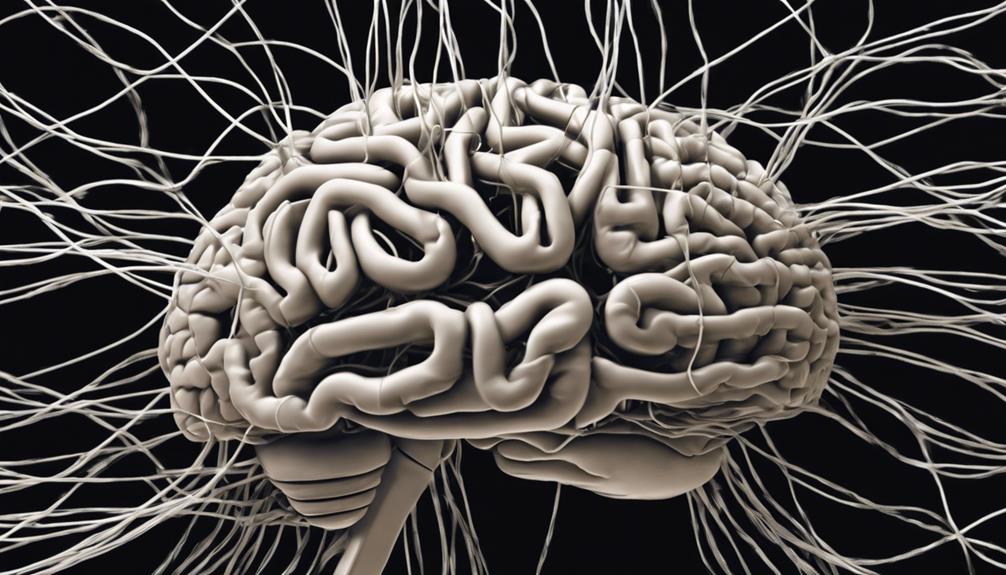Exploring the intricate link between tinnitus and dementia is akin to deciphering a labyrinth of enigmas. The nuanced correlation between these ailments prompts intriguing inquiries into their potential effects on cognitive abilities and overall brain well-being.
Exploring how severe tinnitus may act as a precursor to cognitive decline unveils a compelling narrative that challenges our understanding of these neurological disorders. Let's unravel the layers of this intricate puzzle to shed light on the implications for both patients and healthcare providers.
Tinnitus and Dementia Connection
The association between tinnitus and dementia has been significantly documented, revealing a substantial link between these two conditions. Research indicates that individuals with tinnitus have a 63% higher risk of early-onset dementia and are more likely to experience cognitive decline. Moreover, those with early-onset dementia show a 67% increased likelihood of having previously experienced tinnitus, underlining the connection between these auditory and cognitive disorders.
Studies suggest that tinnitus may act as an early indicator preceding the onset of dementia, emphasizing the importance of monitoring cognitive health in tinnitus patients. The shared neuronal pathology between tinnitus and dementia hints at a common underlying mechanism that contributes to the relationship between these conditions. Understanding this shared mechanism is crucial for identifying potential interventions that could target both tinnitus and cognitive impairment simultaneously.
Therefore, healthcare providers should consider the implications of these findings when managing tinnitus patients, recognizing the potential impact on cognitive health and the need for proactive measures to address cognitive decline in this population.
Impact on Cognitive Function

Numerous studies have established a clear association between tinnitus severity and cognitive function, highlighting the significant impact of this auditory condition on various cognitive abilities.
Tinnitus patients often face memory challenges and attention span issues, leading to lower cognitive assessment scores and cognitive deficits, especially in cases of severe tinnitus. The severity of tinnitus has been linked to distinct cognitive impairments, indicating a strong relationship between tinnitus severity and cognitive function.
Cognitive changes observed in individuals with tinnitus may be attributed to alterations in hippocampal activity, impacting memory and cognitive processing. Furthermore, research has shown a correlation between tinnitus severity and reduced cognitive scores, underscoring the importance of comprehending the cognitive implications of tinnitus.
Understanding these cognitive changes can aid in developing targeted interventions to address the cognitive challenges faced by individuals with tinnitus, ultimately improving their quality of life.
Treatment Options for Dual Condition
Transitioning from the impact of tinnitus on cognitive function, exploring treatment options for individuals with both tinnitus and dementia reveals promising avenues for managing these dual conditions effectively. Here are essential treatment options:
- Cognitive Behavioral Therapy (CBT): CBT helps in managing tinnitus-related distress and improving coping strategies, which are crucial for individuals dealing with both conditions.
- Sound Therapy: Utilizing white noise machines or hearing aids can effectively mask tinnitus sounds, enhancing auditory perception in individuals with dementia and tinnitus.
- Cognitive Training Programs: Tailored cognitive training programs can boost memory, attention, and executive functions, addressing cognitive challenges associated with tinnitus in dementia patients.
- Collaborative Care and Personalized Treatment Plans: Involving audiologists, neurologists, and cognitive specialists is vital to develop personalized treatment plans that consider interactions with dementia medications and cognitive side effects, ensuring comprehensive care for individuals with both tinnitus and dementia.
Managing Symptoms and Quality of Life

Managing tinnitus symptoms effectively involves utilizing sound therapy, cognitive behavioral therapy, relaxation techniques, and preventive measures to enhance quality of life and alleviate associated distress.
Sound therapy, such as white noise or nature sounds, can mask the ringing sensation, providing relief. Cognitive behavioral therapy (CBT) helps individuals cope with emotional distress, improving their overall quality of life.
Relaxation techniques like deep breathing, yoga, or meditation reduce stress levels, easing tinnitus-related anxiety and contributing to symptom management.
Preventing noise exposure and using ear protection in loud environments can prevent further auditory damage and reduce tinnitus intensity.
Seeking professional help from audiologists, otolaryngologists, or tinnitus specialists is crucial for personalized treatment plans and support in effectively managing tinnitus symptoms.
Research and Future Directions
Exploring the potential correlations between tinnitus severity and cognitive decline in individuals presents a critical avenue for future research in understanding the underlying mechanisms of tinnitus dementia. To shed light on this complex relationship, we must focus on the following points:
- Cognitive Impairment Risk: Understanding the specific risk factors associated with tinnitus that may contribute to cognitive impairment will be pivotal in developing targeted interventions.
- Neural Substrates Investigation: Examining the shared neural substrates involved in both tinnitus perception and cognitive processes can provide valuable insights into the mechanisms underlying cognitive decline in tinnitus patients.
- Cognitive Assessments Integration: Integrating comprehensive cognitive assessments into tinnitus management protocols is essential for early detection of cognitive changes and monitoring cognitive outcomes over time.
- Tinnitus management Strategies: Developing tailored tinnitus management strategies that incorporate cognitive interventions may help improve cognitive outcomes and potentially mitigate the risk of dementia in individuals with tinnitus.
Frequently Asked Questions
Is Tinnitus Associated With Dementia?
Yes, tinnitus is associated with dementia. Studies show a significant link between the two conditions, with a 63% higher risk of early-onset dementia in individuals with tinnitus.
This suggests that tinnitus could potentially serve as an early indicator of cognitive decline. Monitoring cognitive health in tinnitus patients is crucial due to this association, emphasizing the importance of assessing dementia risk in individuals experiencing tinnitus symptoms.
Is Tinnitus Related to Brain Disease?
Yes, tinnitus is indeed related to brain disease. Studies show a connection between tinnitus and various brain conditions. Research suggests that the presence of tinnitus may indicate underlying issues within the brain.
This association underscores the importance of investigating tinnitus as a potential sign of neurological concerns. Understanding the relationship between tinnitus and brain health is crucial for early detection and appropriate management of related conditions.
Can You Live a Long Life With Tinnitus?
Yes, we can live a long life with tinnitus. While tinnitus may present challenges, it typically doesn't directly impact life expectancy.
By managing tinnitus through various strategies and seeking support from healthcare professionals, individuals can improve their quality of life and overall well-being.
Coping mechanisms and a focus on mental health can help us lead fulfilling lives despite the presence of tinnitus.
When Does Tinnitus Become Unbearable?
When tinnitus becomes unbearable varies for each individual, but typically, it reaches that point when it significantly hinders daily activities and causes distress that affects one's quality of life.
Severe cases can lead to sleep disturbances, concentration issues, and emotional distress. The intensity and persistence of the sound escalate to unbearable levels, impacting cognitive function and overall well-being.
Seeking professional help is crucial when tinnitus becomes unbearable to explore management strategies.
Conclusion
In conclusion, the link between severe tinnitus and early stages of dementia highlights the importance of monitoring cognitive health in tinnitus patients.
As we navigate the complexities of this connection, we must remain vigilant in managing symptoms and promoting quality of life.
By staying informed and proactive, we can strive towards a better understanding of tinnitus dementia and pave the way for future research and treatment advancements.









